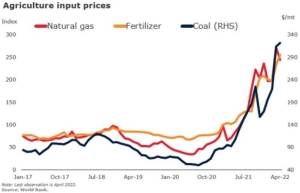The End of Cheap Food is Near as a Highly Technological and Fragile System Faces Collapse
Charles Hugh Smith published an excellent commentary yesterday about how the era of cheap food in America is quickly coming to an end. As a producer and marketer of high quality food produced by small-scale enterprises for the past 20+ years, this is a topic near and dear to my heart, and one I have written about frequently for the past couple of decades, warning that a day like this was coming. Prior to the Industrial Age ushered in by WWII, for thousands of years a person's or family's wealth was not measured by how much money one had in a bank account, but by how much real assets they owned, primarily in agriculture. Even in the pages of the Bible this is clearly seen, where people of wealth and nobility were owners of fields, flocks, cattle, and other agricultural-based assets. When the United States was founded in the late 1700s, 90% of the country's population was involved in agriculture. Many of our "founding fathers" brought their wealth to the U.S. and invested in agriculture, many of them bringing their African slaves with them to work the fields, whether it was producing food, or other commerce ag products such as tobacco in eastern coastal states, or cotton in the south. By the time of the Civil War under Lincoln, about 50% of the population had moved into urban areas, while the other 50% of the population was still employed in agriculture. But in today's highly technological society where only a handful of companies produce food for the rest of the population, less than 1% of the population is employed in agriculture, and a huge percentage of those are illegal immigrants providing cheap labor to do the dirty jobs most Americans feel are beneath them to perform. As Smith points out in his article, few Americans have any idea how their food is produced or what is needed to bring it to their local grocery stores. It has become a highly technological system requiring inputs that only a handful of corporations supply, in what is a very fragile supply-chain dependent system. In the U.S., Americans spend the least amount of their income on food than any other nation in the world. Americans are just used to cheap, mass produced junk food, and those days are fast coming to an end.



